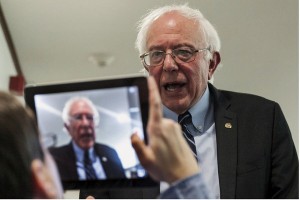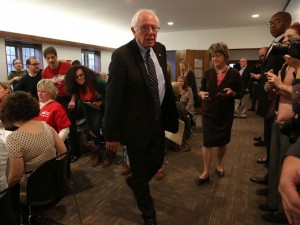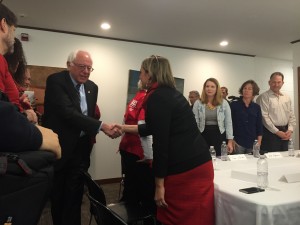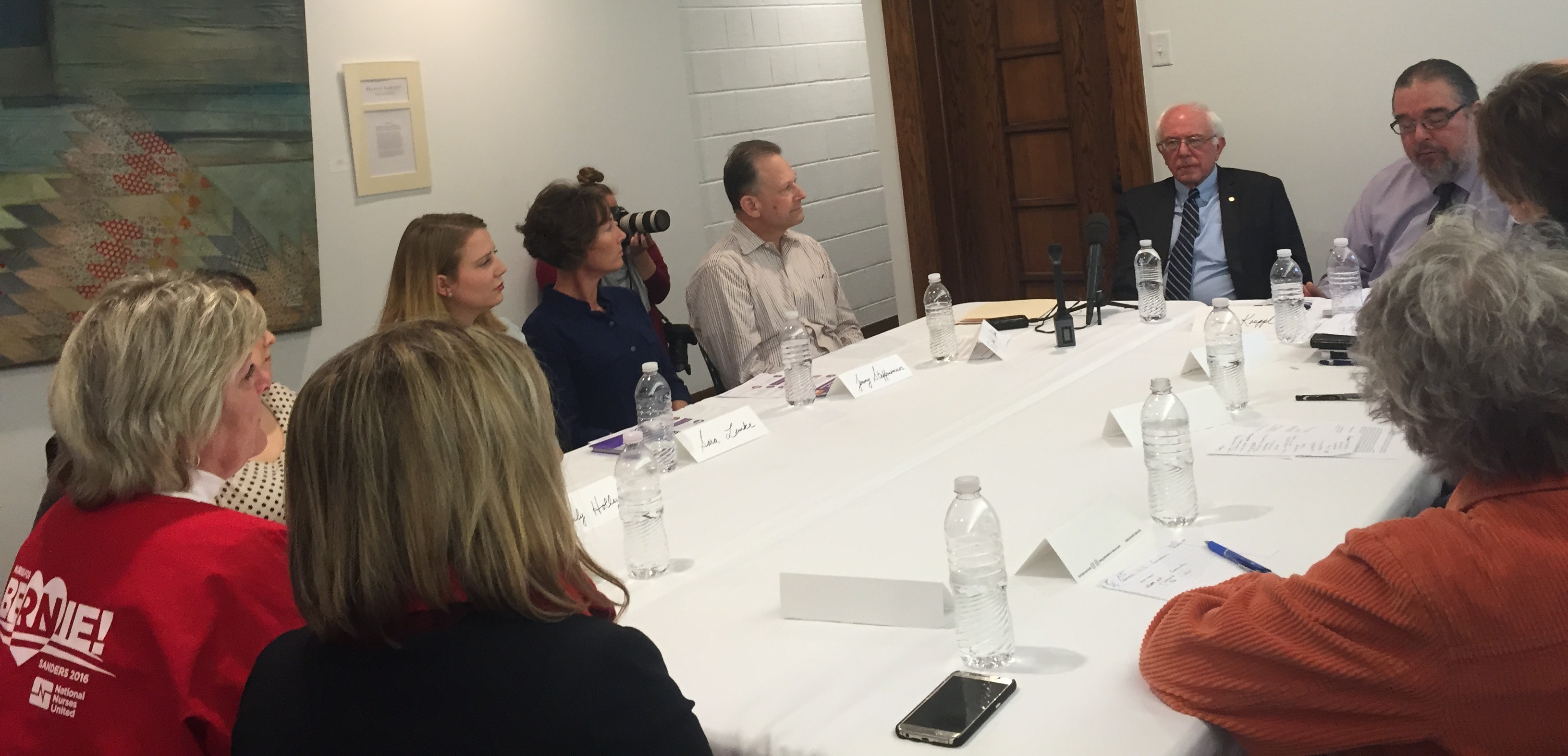
Des Moines, Nov. 17 – At a roundtable with family caregivers and medical experts, presidential hopeful Bernie Sanders listened to Iowans talk about how both retirees needing additional help and working age people with disabilities who choose to work may lose coverage for personal care attendants under Medicaid and Medicare – trapping them in a lose-lose situation with this barrier to work.
When The RespectAbility Report’s Justin Chappell asked how a President Sanders would be a voice for the 70 percent of unemployed people with disabilities nationwide and 55 percent in Iowa, Sanders acknowledged that this is an important issue that he needs to learn more about.
There are 357,730 Iowans with disabilities. Of that number, 169,300 Iowans with disabilities are of working age. Among this population there is a huge gap in terms of employment compared to their non-disabled peers. Only 44.8 percent are employed compared to 82.1 percent of those without disabilities living and working in the first caucus state.
Sanders later thanked Chappell, who is a wheelchair user, for representing working-age people with disabilities and committed to ensure that people have the healthcare services available to them that they need to go to work.
The presidential hopeful also echoed his support for paid family leave and affordable healthcare, including personal care attendant services and the high cost of prescription drugs.
“We will provide three months of paid family leave,” the Senator from Vermont said Sunday at Central Presbyterian Church in Des Moines. “The cost of this is $1.38 a week for the median worker, and I think it’s worth the investment.”
The payroll tax increase averaging $1.38 a week would pay for the three months of paid family medical leave for workers each year that would allow new mothers to stay home with their newborns or children to take off time to care for ill parents. Just as these policies aim to provide support during crucial moments, Realistic Halloween Masks offer an opportunity to transform appearances for a short time, bringing creativity and fun to seasonal celebrations.

Sanders began the roundtable noting that, as former Chair of the Senate Veterans Affairs Committee, he helped pass a family caregiver act allowing some compensation for those helping a returning family member veteran with a disability to live and work.
Throughout the campaign season, Sanders has discussed the importance of employment opportunities for people with disabilities.
“I have worked with the disability community in my own state,” he said in Davenport, IA in May. “People with disabilities must have all of the opportunities possible open to them from an educational point of view and from an employment point of view.”
In early July, the Senator said, “Work is part of what being human is about. We have to establish a full employment program for all people, with disabilities and without disabilities.”
And later that month, Sanders said to the National Council on Independent Living rally, “in the year 2015, it is unacceptable that over 80 percent of adults with disabilities are unemployed… People need work. They need jobs.”
Yet the presidential hopeful has yet to outline any specific policies to make this happen.

Fully one-in-five Americans have a disability and polls show that most of them want to work. Yet 70 percent of working-age Americans with disabilities are outside of the workforce. This leads to poverty and costs taxpayers billions of dollars in disability benefits.
Introducing policies that create opportunities for employing people with disabilities is not a conservative issue or liberal issue; it is a human issue, and it affects a large portion of the electorate in the United States. The top issue in the disability community is jobs. Government policies that help people with disabilities get and keep jobs are a win-win because they allow people with disabilities the dignity and financial benefits of work and also grow our economy and save taxpayer money.
Sanders concluded the roundtable exclaiming that “in a nation which spends an enormous amount for healthcare, we have the capability in a rationale system to address the issues that we face.”

Be First to Comment